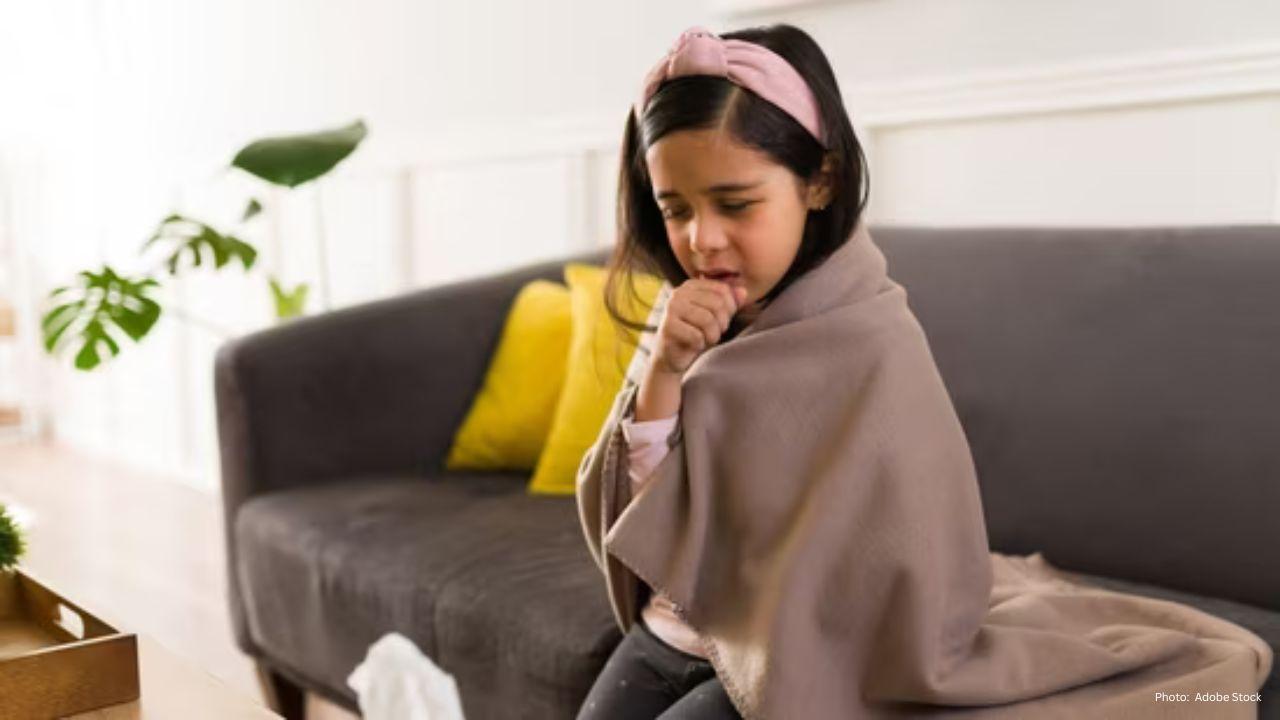
Post by : Saif Nasser
Chronic obstructive pulmonary disease (COPD) has long been seen as a serious ailment affecting adults. However, recent warnings from health professionals indicate that children are showing early signs of this condition. Contributing factors like escalating air pollution, increased exposure to smoke, and frequent respiratory infections in childhood are putting young lungs under unprecedented stress. On World COPD Day, experts are calling on parents to remain vigilant and to recognize potential indicators of lung damage in their children.
The World Health Organization reports that over 392 million individuals globally live with COPD. This disease causes inflammation and gradual constriction of airways, resulting in breathing difficulties. Although adults represent the largest demographic impacted, pediatricians are observing a growing number of children exhibiting symptoms akin to early-stage COPD. This rise is largely associated with environmental shifts, particularly in urban areas where air quality has deteriorated significantly. Constant exposure to polluted air could hinder the full development of children's lungs, subsequently elevating the risk of respiratory issues later in life.
Medical experts emphasize that COPD is not an overnight development; it unfolds gradually, beginning with damage from early childhood exposure to harmful pollutants. Sources include secondhand smoke, fumes from burning fuels like wood or coal, indoor pollutants, mosquito coils, incense, and traffic emissions. Many households still rely on traditional cooking fuels that produce smoke, which can fill living spaces. Children who inhale this smoke regularly may experience airway irritation and swelling, potentially leading to irreversible harm.
Moreover, frequent chest infections pose another significant concern. Recurrent illnesses such as colds or lung infections can weaken the respiratory system of young children. Dr. Akshay Mehta, an esteemed pediatric specialist, explained that continuous exposure to harmful air and persistent illnesses could compromise lung growth. If children's lungs fail to fully develop in the early years, they may encounter heightened risks for severe respiratory problems in adulthood. Additionally, untreated asthma in children may contribute to lasting lung damage.
Rarer causes, like the genetic disorder alpha-1 antitrypsin deficiency, can also instigate COPD in younger individuals. Nevertheless, in most cases, the root cause lies in environmental factors and regular exposure to polluted air. For older children, working in dusty or chemically contaminated environments can present further risks.
Parents are urged to identify early symptoms for timely intervention. Signs to watch for include mucus-producing coughs, frequent shortness of breath, wheezing, fatigue after mild exertion, and loss of interest in play. Children may experience recurrent chest infections without apparent reasons. These symptoms are frequently misinterpreted as common asthma or seasonal ailments; however, when they persist, seeking medical evaluation becomes vital. Breathing tests, such as spirometry, are typically employed to assess lung function, though access to these assessments remains limited in many areas.
Fortunately, parents can lower the risk of COPD by taking proactive measures. The first step involves eliminating cigarette smoke from children's environments, as even passive exposure can be damaging. Families should work towards maintaining a smoke-free home, encouraging smokers to either quit or smoke outside. To improve indoor air quality, it is advisable to open windows during cooking and to switch from traditional fuels like wood and coal to cleaner options whenever feasible. Minimizing the use of incense sticks, mosquito coils, intense sprays, and air fresheners is also recommended, as these can release irritants harmful to growing lungs.
On days when outdoor pollution is high, children should limit outdoor play and engage in indoor activities instead. Wearing masks and practicing good hygiene, such as regular handwashing, can help mitigate infections that compromise lung health. Furthermore, it is crucial for prescribed medications, like inhalers, to be administered as directed, as neglecting treatment or relying exclusively on home remedies without medical consultation may exacerbate long-term damage.
Children experiencing persistent respiratory problems should have routine medical checkups to monitor lung growth and overall function. Treatment strategies should be adjusted based on their progress. With timely care, increased awareness, enhanced air quality at home, and proper medical support, many children can evade long-term health complications. World COPD Day acts as a crucial reminder that safeguarding young lungs today is instrumental in preventing serious diseases in the future.










Mattel Revives Masters of the Universe Action Figures Ahead of Film Launch
Mattel is reintroducing Masters of the Universe figures in line with its upcoming film, tapping into

China Executes 11 Members of Criminal Clan Linked to Myanmar Scam
China has executed 11 criminals associated with the Ming family, known for major scams and human tra

US Issues Alarm to Iran as Military Forces Deploy in Gulf Region
With a significant military presence in the Gulf, Trump urges Iran to negotiate a nuclear deal or fa

Copper Prices Reach Unprecedented Highs Amid Geopolitical Turmoil
Copper prices soar to all-time highs as geopolitical tensions and a weakening dollar boost investor

New Zealand Secures First Win Against India, Triumph by 50 Runs
New Zealand won the 4th T20I against India by 50 runs in Vizag. Despite Dube's impressive 65, India